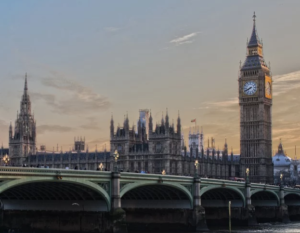
The Budget delivered by new Chancellor of the Exchequer Rishi Sunak last week was certainly a head turner, as the Conservatives didn`t just loosen the purse strings, they tipped the purse upside down and squeezed as much money as they could out of the coffers.
Measures To Lessen Impact Of Coronavirus

There were two reasons for this. One was that they needed to deliver on some of the promises that they made in the run up to the General Election, and two, and probably a lot more importantly, they needed to bring in measures that would lessen the impact of the coronavirus which looks like it will envelop our shores in the near future.
UK Businesses Promised £30bn In Support
The Chancellor promised UK businesses £30bn in an effort to provide them support and lessen the impact that the virus is going to have on businesses and the overall economy. £12bn of this would be for direct support to businesses and a further £18bn would be used to counteract the temporary downturn in the economy.
Here are some of the major changes relating to businesses as quoted on the Accounting Web website:
“The specific coronavirus Budget measures include:
Extended statutory sick pay entitlement from day one (previously announced), to be refunded in full by the government. “That could provide over £2bn for up to 2m businesses,” the Chancellor said.
Extended time to pay arrangements allowing businesses and the self employed to defer tax payments.
A £500m hardship fund for local authorities to distribute to vulnerable people in their areas.
Coronavirus business interruption loan scheme, offering an extra £1bn in overdrafts and short-term loans through the British Business Bank.
Business rates holiday
The Chancellor brushed up his business-friendly credentials by announcing a 100% business rates discount for 12 months starting from 1 April 2020. The holiday would be extended to any eligible retail, leisure or hospitality business with a rateable value below £51,000.
The £1,500 business rates discount for office space used by local newspapers in England will also be extended for five more years until 31 March 2025 and the government promised to bring forward legislation to provide 100% business rates relief for public lavatories in England from April 2020.
Local authorities will be fully compensated for the loss of income as a result of these temporary business rates measures, but the long awaited “fundamental review of business rates” will now get underway and report in the autumn.
Entrepreneurs Relief
Among the many Tory manifesto commitments to get a name check during the Budget speech was entrepreneurs’ relief. In AccountingWEB’s live Budget blog, PracticeWeb contributor Carl Powell predicted: “They’re going to do something, but it will probably be a fudge.”
And so it came to pass. The long-trailed crackdown took the form of a reduction in the £10m lifetime limit on eligible gains to £1m, effective immediately. The move would leave 80% of small businesses unaffected by the changes and save £6bn over the next five years, the Chancellor said.
Corporation Tax
Few surprises here, with the standard rate of corporation tax held at 19% for the financial years commencing 1 April 2020 and 2021, as already announced. There will be new restrictions in place from 1 April 2020 on how much chargeable gains companies can offset against brought forward capital losses. From that date only 50% of net chargeable gains may be sheltered , subject to the allocation of a company’s (or group’s) £5m annual ‘deductions allowance’.
The Research and Development Expenditure credit will be increased from 12 to 13% – a tax cut worth £2,400 on a typical R&D claim. There have been calls for tighter controls on what has become a popular concession, but the Chancellor signalled a more relaxed short-term approach, delaying a cap SME relief for a year and promising further consultation. The discussions will include whether or not data and cloud computing initiatives will be eligible for R&D relief claims.
The structures and buildings allowance will be increased from 2 to 3%, giving an extra £100,000 of relief if you’re investing in a building worth £10m.
For companies operating in enterprise zones, 100% enhanced capital allowances (ECAs) on plant and machinery expenditure will be extended until at least 31 March 2021. The allowances were due to lapse on 31 March 2020, but will now survive for at least one further year.”
If you have a business and you need help to steer through the choppy waters of the next few months, here at WHR Accountants we can provide you with expert support on general accounting, taxation, funding, payroll, business plans, auditing and much more. For more details please get in touch with our team by giving us a call on 028 3752 2909.
Leave a Reply
You must be logged in to post a comment.